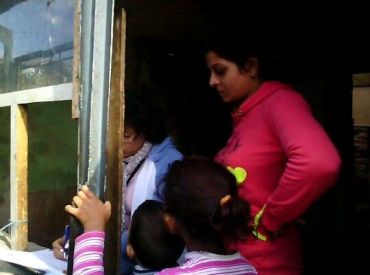Medical checks in ZOV region of Sliven
2018-06-30

In the period January – June 2018, the Roma Health partner conducted gynecological exams for 259 Roma women. 221 Roma were screened for tapeworm and 2 of these were positively diagnosed and further treated. 35 patients at risk to be sick of Hepatitis B, and C, syphilis, and AIDS were screened and 2 were diagnosed with syphilis and hepatitis B. 79 insured pregnant women were screened as well.
143 Roma took part in sessions on family planning and reproductive health carried out by the partner Doctors of the World. 683 individual consultations on any health problem were conducted, whereas half of these people came to the offices for the 1st time. Doctors of the World work with pastors in order to deal with early marriages and births. 10 pastors take part in 3 round tables on these issues. 122 women were consulted on contraception measures and 80 of them decided to have the IUDs placed.


